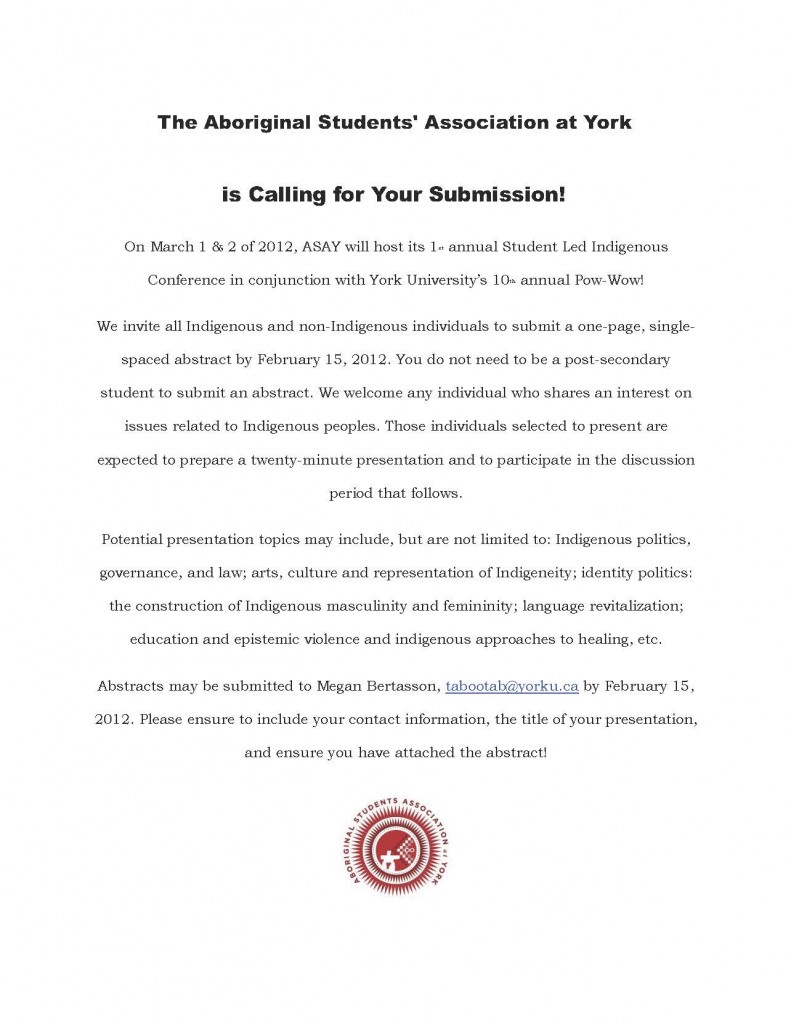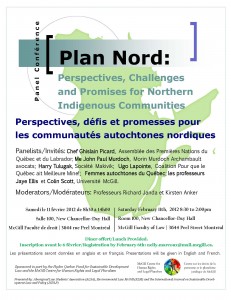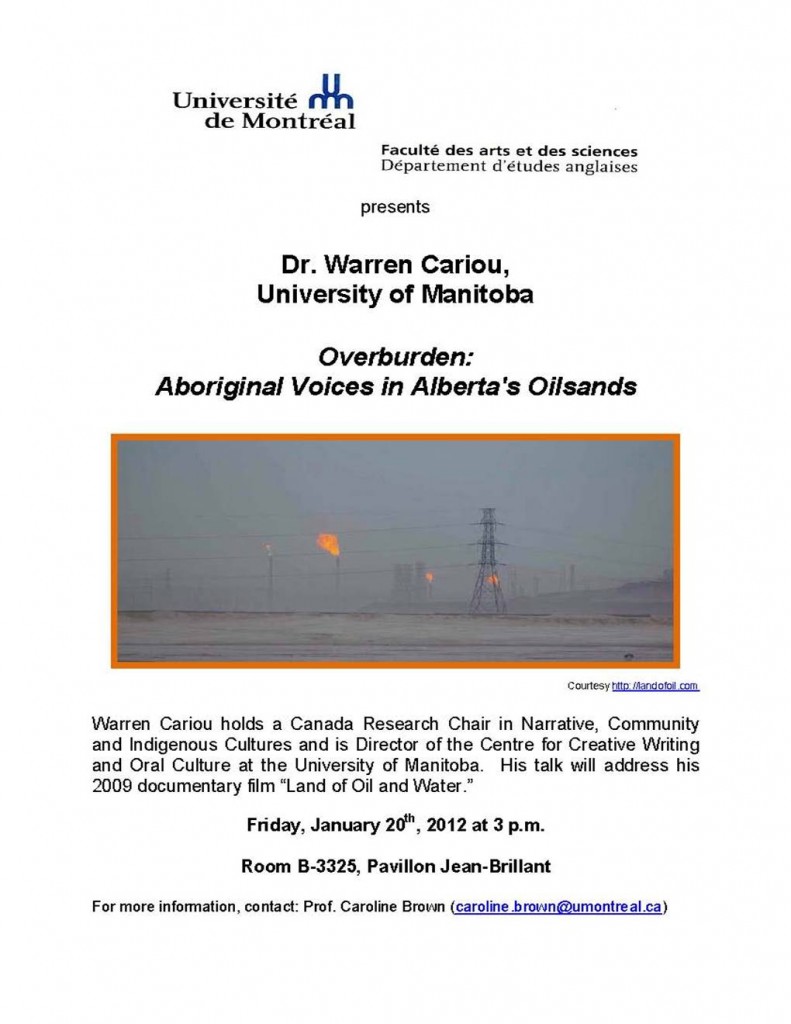The Aboriginal Law Students Association, Environmental Law McGill and the International Journal on Sustainable Development Law and Policy are pleased to welcome the public to attend a cross-disciplinary panel discussion bringing together indigenous leaders and community members, researchers, legal practitioners and representatives of civil society organizations to discuss some of the issues arising from the implementation of Plan Nord.
Plan Nord, the Government of Quebec’s ambitious development strategy covering some two thirds of the province’s territory north of the 49th parallel, contemplates the development of the energy, mining, forestry, biofood and transportation sectors across the area. The sought-after land is inhabited by some 33,000 members of the Cree, Inuit, and Innu communities, most of which remain geographically isolated and have been historically marginalized. Advertised as a new model of sustainable development which will reconcile economic, environmental and social aspirations, Plan Nord promises to open an economic space for aboriginal participants and to build a partnership with Aboriginal communities based on respect of indigenous cultures and identities. Yet, many questions remain with regards to the measures which will be taken to flesh out the government’s commitments and achieve its stated goals.
Panelists will aim to provide an analysis of the issues affecting Northern indigenous communities with regards to consultation processes and the eventual implementation of the Government of Quebec’s commitments and constitutional obligations towards Aboriginal communities. The potential impacts of large-scale development projects on indigenous cultures, governance and livelihoods, the promises and pitfalls of sustainable development as a framework for the implementation of Plan Nord and issues of participation in decision-making, governance and self-determination, will be addressed.
PANELISTS:
* Chief Ghislain Picard, Regional Chief of Quebec and Labrador, Assembly of First Nations
* Me John Paul Murdoch, attorney
* Ugo Lapointe, spokesperson for La Coalition Pour que le Québec ait Meilleure Mine!
* Aurélie Arnaud, Native Women of Quebec Inc.
* Harry Tulugak, Makivik Corporation (to be confirmed)
* Professor Colin Scott, Associate Professor, Faculty of Anthropology, McGill University
* Professor Jaye Ellis, Associate Professor, Faculty of Law and McGill School of Environment
Presentation will be in French or in English
Saturday February 11, 2012, 8:30 a.m. to 2:00 p.m.
Room 100, New Chancellor-Day Hall Building
Faculty of Law, McGill University; 3644 Peel Street
To register, please email Nelly Marcoux before February 6th, at nelly.marcoux@mail.mcgill.ca
This event has been co-sponsored by the Hydro Quebec Fund for Sustainable Development Law and McGill’s Centre for Human Rights and Legal Pluralism.
http://www.facebook.com/events/356911370986386/


